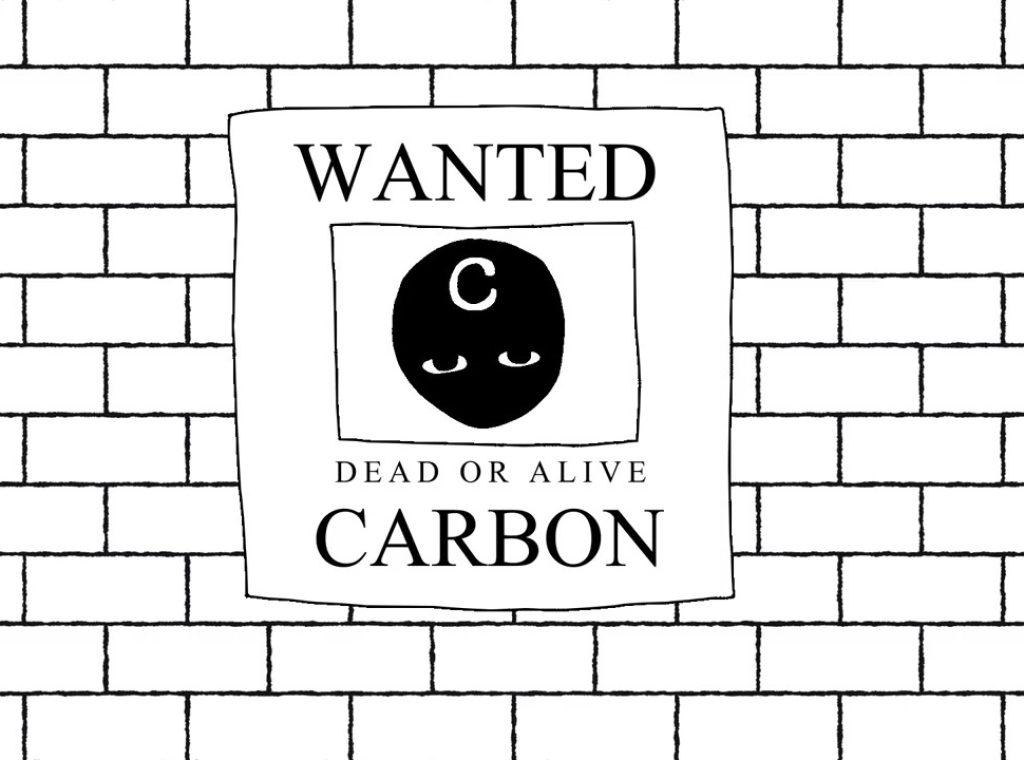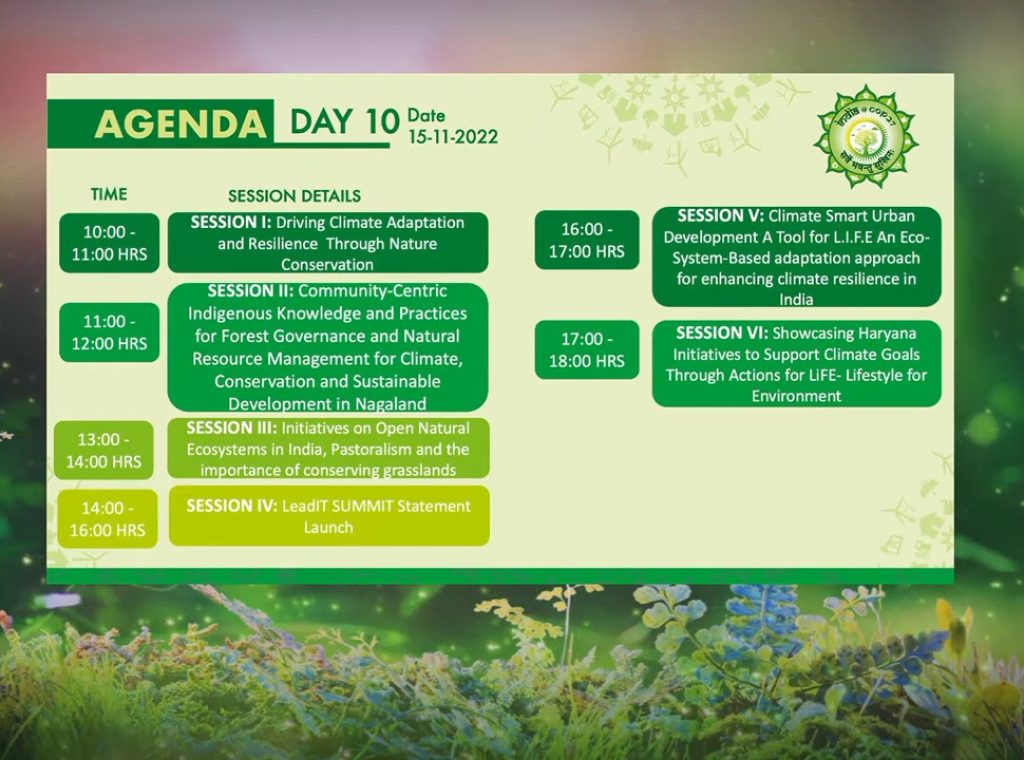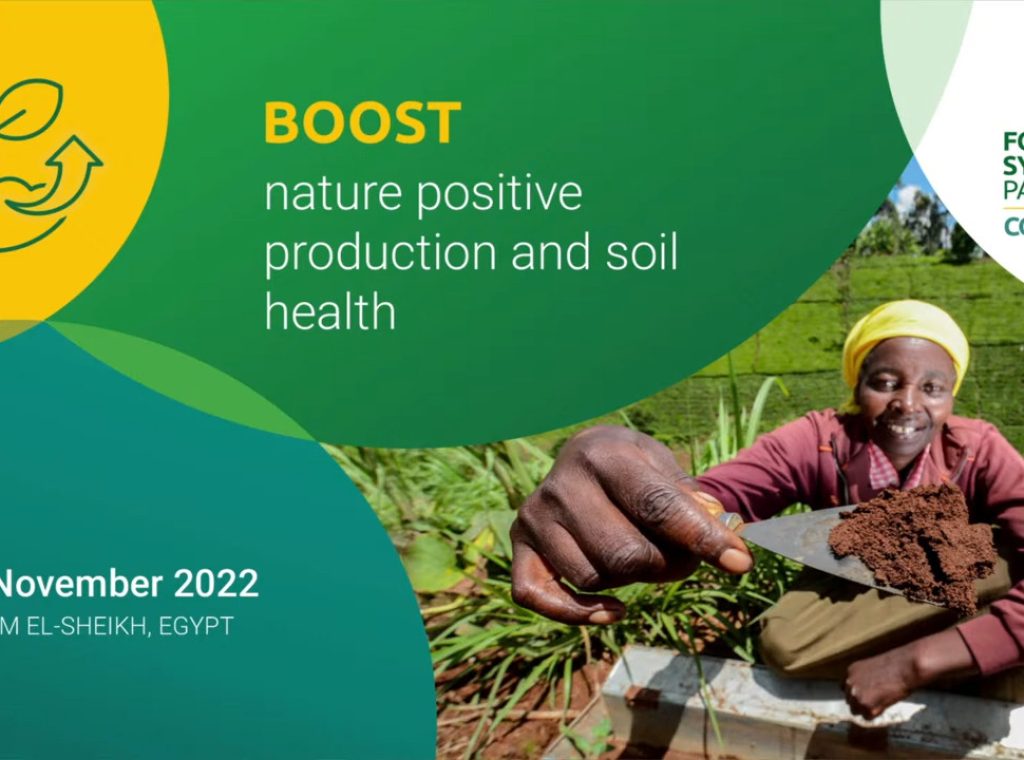One of our objectives is to communicate findings from the work undertaken at ATREE, and offer insights and observations on a range of themes. Outreach and knowledge dissemination are integral to driving policy change by reaching wide-ranging audiences and stakeholders.
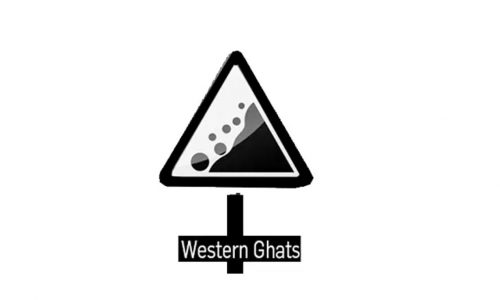
We have been participating at the UNFCCC Conference of Parties (COP) every year since 2021. COP is the main decision-making body of the UNFCCC. It includes representatives of all the ‘Parties’, i.e. countries that have agreed to participate in and be bound by the UNFCCC. COP meetings primarily revolve around negotiations and debates. The aim is to review progress towards the overall goal of the UNFCCC: to limit climate change. The attendees at COP are representatives of governments (Parties) or non-party ‘observer’ organisations, which include non-governmental organisations such as civil society organisations, the private sector, financial institutions, subnational authorities, and local communities.
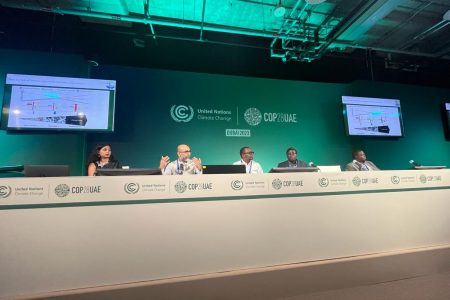
Further to our efforts in the previous two years, we organised and participated in several panel discussions with the central message “Conserving nature is critical to achieving the Paris Agreement’s goals”, and shared knowledge on the pathways to achieve this. We participated in 8 events, including an official UNFCCC side event and advocated for well-planned nature based solutions.
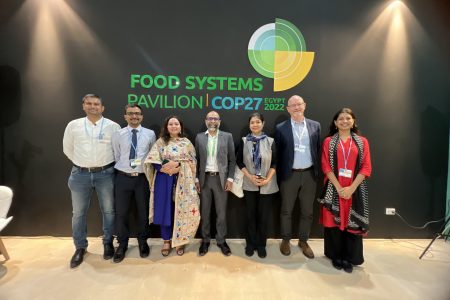
The ATREE team was at COP27 in Sharm el-Sheikh in Egypt to organise events on soil health and ecological restoration. ATREE organised 1 event at the India Pavillion, 2 events at the Food Systems Pavillion, and participated in other panels and discussions. COP27 was an opportunity for us to share a restoration roadmap and preliminary findings from our pilots on a prestigious global platform and gauge global perspectives on our approach and gain insights to scale our efforts.

The ATREE team was at the UNFCCC COP26 on behalf of the Alliance for Reversing Ecosystem Services Threats (AREST) and organised 4 panel discussions at the Nature Pavillion. Despite the nuance and contextual understanding specific to each of our panels, one overall message communicated was the need to mainstream ‘Nature-Based Solutions’ in global climate negotiations.
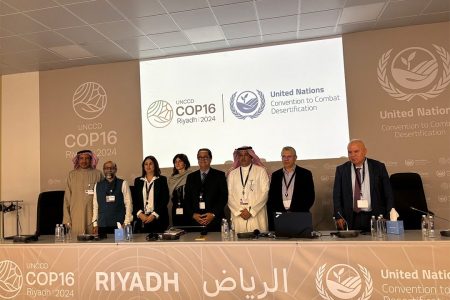
ATREE’s inaugural presence at the UNCCD Cop 16 in Riyadh, Saudi Arabia was a great success, with critical engagement with a wide range of stakeholders, both from the government and other international institutions. ATREE hosted an event at the WOCAT Pavilion which was attended by the India Delegation to the UNCCD. The delegation released the White Paper on Open Natural Ecosystems, followed by a robust discussion between the participants, both from the government as well as international agencies such as CGIAR, WOCAT and CIFOR-ICRAF.

The ATREE team was at COP27 in Sharm el-Sheikh in Egypt to organise events on soil health and ecological restoration. ATREE organised 1 event at the India Pavillion, 2 events at the Food Systems Pavillion, and participated in other panels and discussions. COP27 was an opportunity for us to share a restoration roadmap and preliminary findings from our pilots on a prestigious global platform and gauge global perspectives on our approach and gain insights to scale our efforts.

The ATREE team was at the UNFCCC COP26 on behalf of the Alliance for Reversing Ecosystem Services Threats (AREST) and organised 4 panel discussions at the Nature Pavillion. Despite the nuance and contextual understanding specific to each of our panels, one overall message communicated was the need to mainstream ‘Nature-Based Solutions’ in global climate negotiations.
